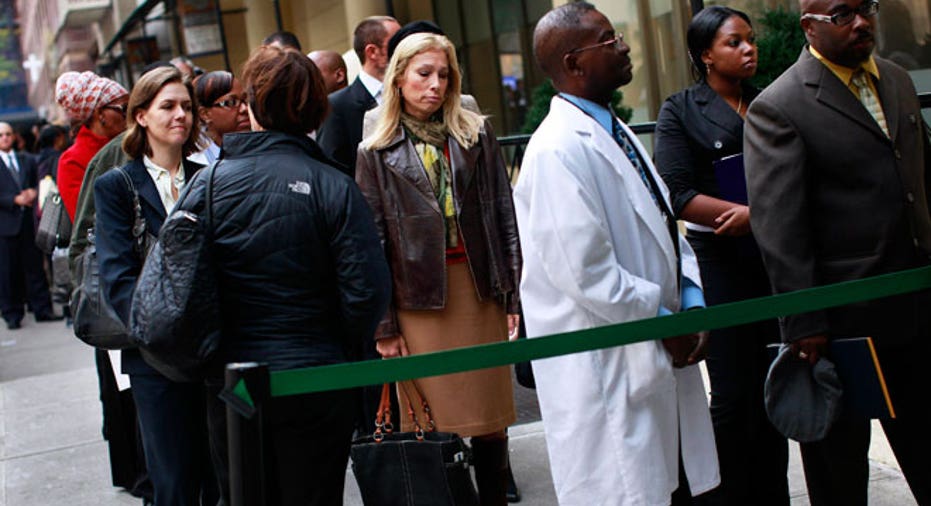What a Waste: $3.3B Paid Out in False Unemployment Claims in 2011

Imagine being unemployed and still being able to build a lakefront home, all you need is a little taxpayer money. Private investigator Bernie "The Bug" Soldate says he's seen that, and worse, while trailing fraudsters who are making false unemployment claims.
"This guy, who was collecting in Connecticut, built a home on a lake-- it was a palace," Soldate says. "He wasn't looking for work, he was just building his home."
Soldate tells the story of another claimant that had files of accomplices in human resources departments who was in an arrangements with to bilk the system. This fraudster was on his second round of unemployment and had notes to "call Ted, and remind him that if the [government] calls to say I went to him looking for work and was wonderful, but wasn't a good fit for the job.”
"People in HR departments would sign him off as looking for work when he wasn't because they were his friends," he says. "This is just the tip of the iceberg-- people get more and more creative."
According to a recent study, unemployment fraudsters are costing the government billions of dollars. The St. Louis Federal Reserve reports $3.3 billion out of a total $108 billion was paid out in fraudulent unemployment claims in 2011. What's more, $2.2 billion went to people who are actually still working.
Current unemployment insurance is provided for up to 26 weeks, but can be collected for longer if state unemployment rates are higher-- for an additional 13 weeks. During the recession lawmakers extended benefits for up to 99 weeks, however this ended in September 2012.
James Sherk, senior policy analyst at the Heritage Foundation, says pre-recession, unemployment benefits were being paid out at around $40 billion a year. Post- recession the program has nearly tripled to more than $100 billion, making the opportunity for fraud to occur even greater.
"The aggregate amount of fraud has gotten worse, because the program is bigger," Sherk says. "These [fraudulent claims] are being paid out at higher rates than the $1.6 billion we are paying for the Job Core training program for at-risk youth."
Sherk does point out, that while $3.3 billion is still a huge number, its roughly just 3% of the total amount being paid out.
"It's still an enormous amount of money," he says.
Who is Benefitting and How?
The St. Louis Fed reports those earning the lowest, at $300 a week and less, were paid out $210 million of these fraudulent claims. Half a billion went to those earning $900 a week or more.
Soldate says many of these claims come from people working in manual labor, mainly construction, who can easily find work that pays under the table.
"They collect unemployment and continue to do side jobs on their own," he says. "They're easy to watch [for investigators] because we can see them easily."
What's more, these fraudsters will actually give their employers bogus social security numbers. So it appears to payroll department that they are legitimate, but when push comes to shove, they aren't who they claim to be.
"They will collect their paycheck, and when all is said and done, they are not who they say they are," he says.
And convicted felons? They're cashing in too. Sherk says those behind bars will have their family or friends file claims, and then collect while actually serving time.
"Being a convicted felon doesn't make you eligible for this," he says. "The focus [from the government] over the past few years has been to get the money out the door and to the people."
Finally those who have actually found work will ride out their 26 weeks or more of unemployment and just not alert the government that they have a new job, Sherk says.
"They were people who legitimately qualified for benefits, but then wait awhile to tell the government that they have a job in the first place," he says.
How Can the Government Fix It?
The Labor Department, which declined to comment for this story, directed FOXBusiness.com to its recent efforts in providing grants to states to bolster their Unemployment Insurance Program integrity. In September 2012, $169.9 million was awarded to 30 states to enhance their programs
To cut down on the amount of wasteful spending, Soldate says the government needs to follow up on received tips. He says,many times disgruntled exes will report their former flames to companies or the government for this type of fraud, but it isn't always followed up on.
"The government [may] realize enough of them are doing it, but don't have the manpower or means to come out and investigate a claim of that nature."
Sherk says having a greater vetting process is also essential to curbing this type of fraud.
"What needs to be done to fix this are more intensive requirements," he says. " By definition, this shouldn't be happening."



















